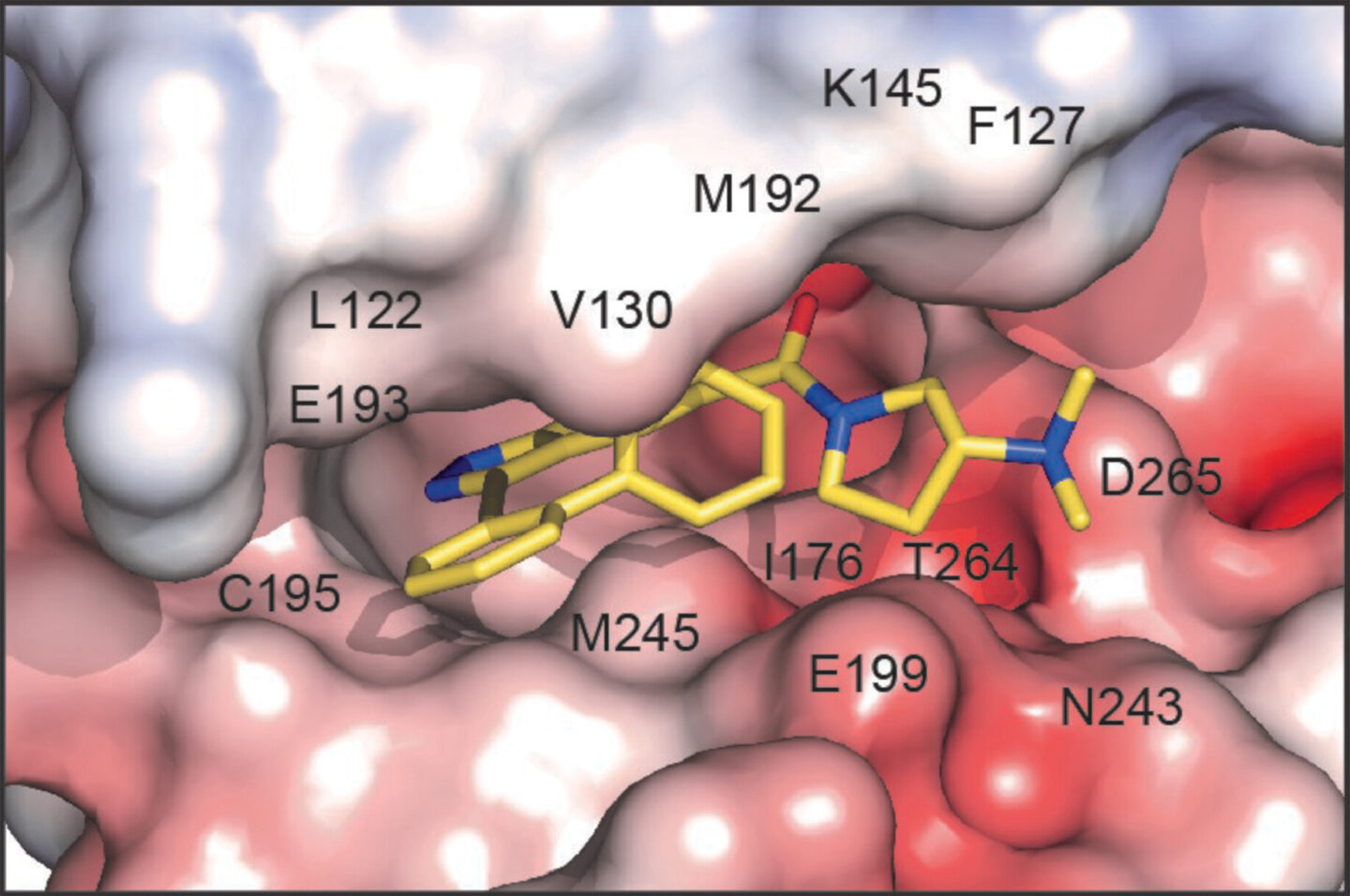Contraception enables individuals to choose when and whether to conceive. But more options are needed for nonhormonal contraceptives, which target specific proteins related to reproduction, and for non-barrier, reversible methods for men.
Researchers at the Baylor College of Medicine identified a small-molecule protein inhibitor—screened from billions of compounds—that blocks an enzyme called serine/threonine kinase 33 (STK33) that is key to male fertility. Protein crystallography performed at the Advanced Light Source (ALS) provided valuable structure-activity insights, and tests in male mice showed that an optimized version of the compound reversibly suppresses fertility.
The team, which included Banumathi Sankaran, a research scientist in the Molecular Biophysics and Integrated Bioimaging (MBIB) Division, published their results in Science. Sankaran leads the Collaborative Crystallography mail-in service at the ALS which is run under the aegis of the ALS-ENABLE program. She collected X-ray diffraction data for crystals analyzed using beamline 5.0.2 in the Berkeley Center for Structural Biology at the ALS.
Read more in the ALS Science Highlight.




